This 4-part blog series is being featured on The Wise Traveller – a global travel site providing innovative ideas and insights to make travel easier, safer, cheaper and more enriching. In addition, freelancers share their travel experiences there, so the community can have a taste of a variety of destinations and/or adventures.
Click here to read my latest blog on trekking to one of the most sacred glaciers in the Himalayas, surrounded by revered summits:
https://www.thewisetraveller.com/Articles/view/?permalink=trekking-in-the-indian-himalayas-part-3
Blog synopsis:
There is no getting around it; mountaineering in the Himalayas requires an enormous amount of stamina and planning. Besides being fit as a fiddle for my 10-day, 75-kilometre (46.5 miles) trek, I had to be savvy to cope with the oxygen-deprived air at 4,700 metres (15,416 feet). Being off the grid meant no electricity, Wi-Fi or telco service, so camera-charging options were limited to portable solar panels and power banks. Then there was the task of packing for the highly undependable, monsoon weather that might range from -10 to 25°C (14-77°F), with the chance of fog, rain or snow at any moment. The secret was heat-retention, layering and waterproofing – as well as lots of wet wipes, since showers would be off the menu.
If you have never been on a trek, it is quite unbelievable what all gets hauled up and back, and how those logistics work. Having Nepalese Sherpas really tipped the scales in our favour, as they are adept mountaineers – weathered, surefooted, insensitive to altitude and capable of carrying backbreaking supplies topping 50 kg (110 lbs) each. We needed that muscle to lug all our food, a stove, propane, sleeping bags, inflatable mats, plus an array of tents.
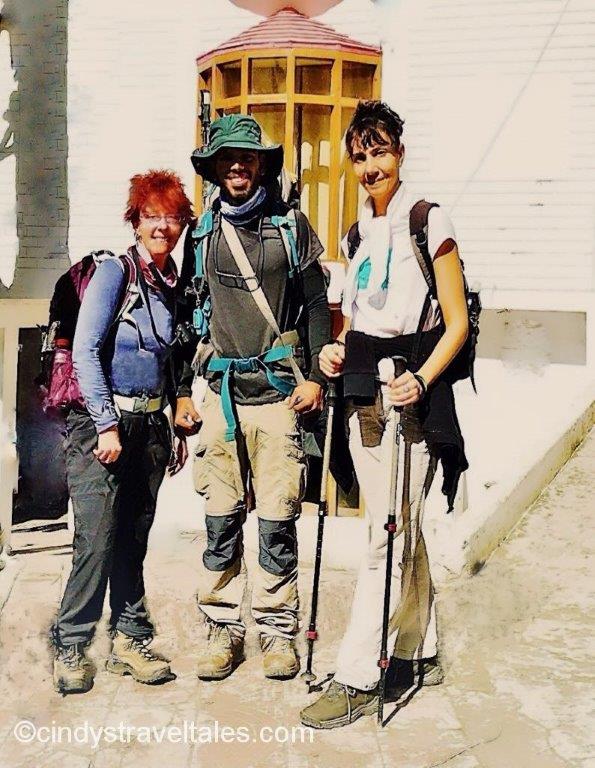
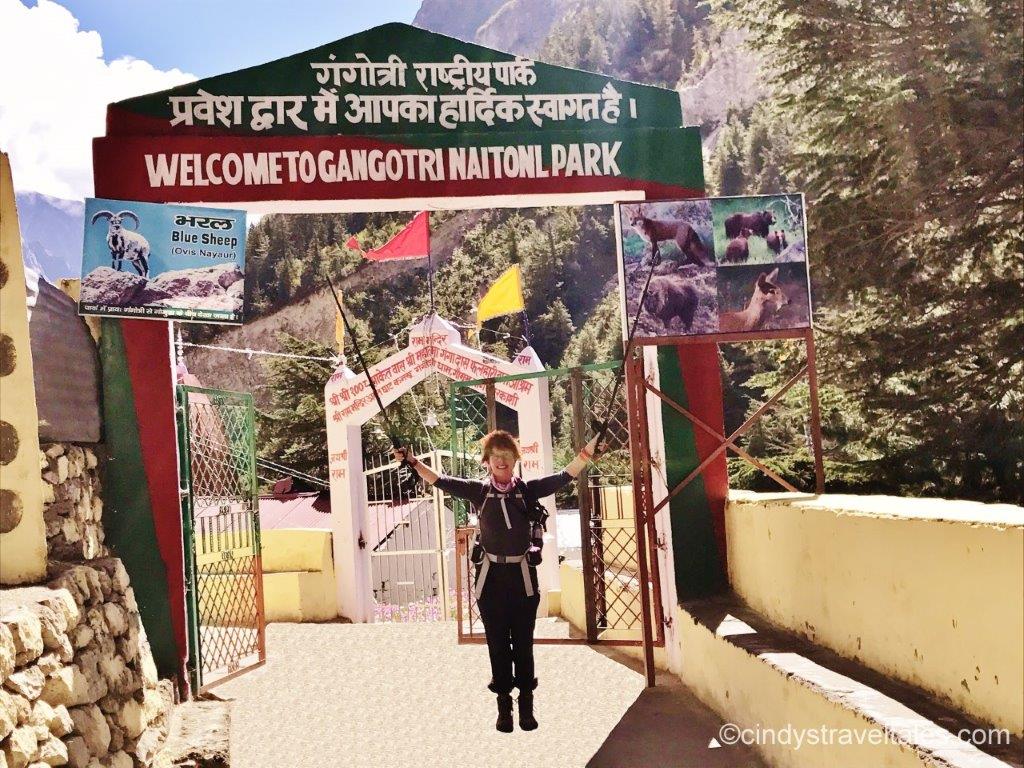
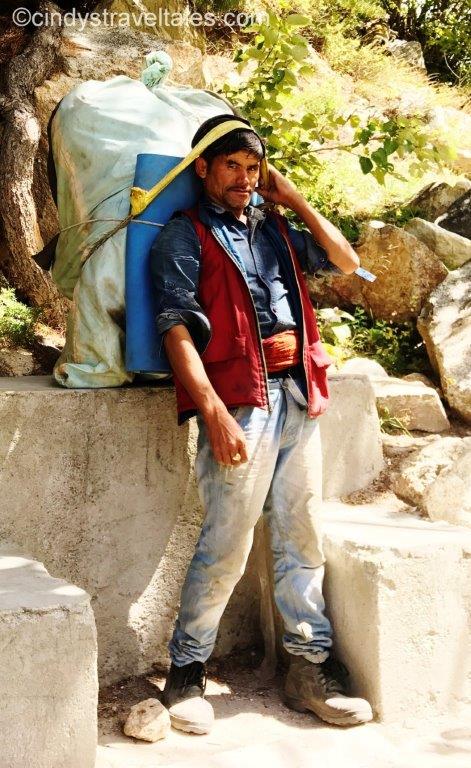
Day One
The sun gods gifted us with monsoon-eluding, cobalt-blue skies, as we parallelled the Bhagirathi River, gradually rising through lush pines and junipers – under the watchful eye of Mts. Sudarshan Parbat and Bhagirathi II and III. The route to our camp at Chirwasa was so deserted, I could be fully present to the allure of nature with its mystical essence that has attracted sages, babas, yogis and sadhus for eons. It was magical snuggling into our sacks, undistracted by gadgets, with the primal gratification that we were guests in a very precious and fragile playground.
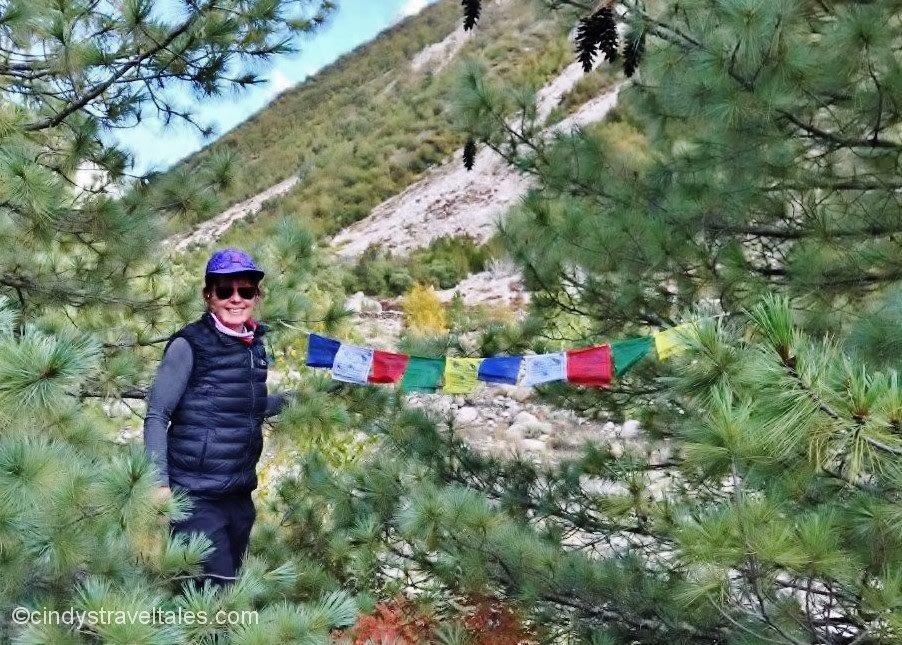
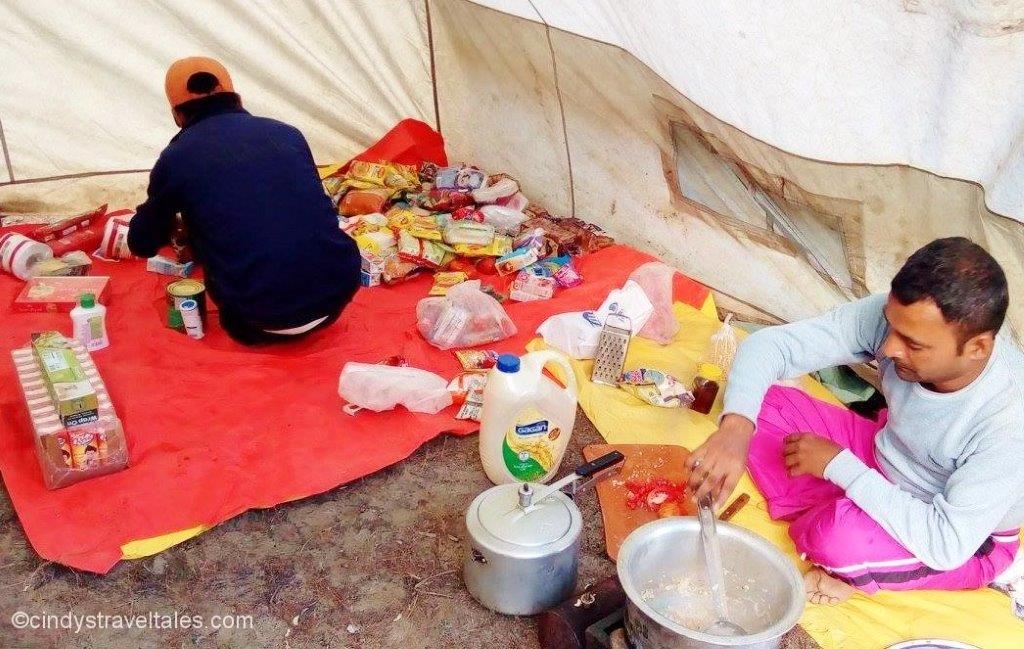
Day Two
The forest completely changed as we ascended through silver birch and got our first glimpse of towering Mts. Bhagirathi I, Manda I, II, III and Shivling. Adopting a nomadic rhythm was a bit tricky given the unstable turf – compounded by having to cross overflowing tributaries with rickety bridges consisting of a couple of logs slapped together with twine. The challenges were soon forgotten by the time we arrived at our magnificent above-the-treeline campsite at Bhojwasa. The stillness, punctuated by the constant thunder of the turbulent and sentiment-laden Bhagirathi River, was testimony that we had succeeded in escaping civilisation and venturing into the pristine wilderness. As night fell, countless stars appeared, and I was rejuvenated with a sense of wonder.
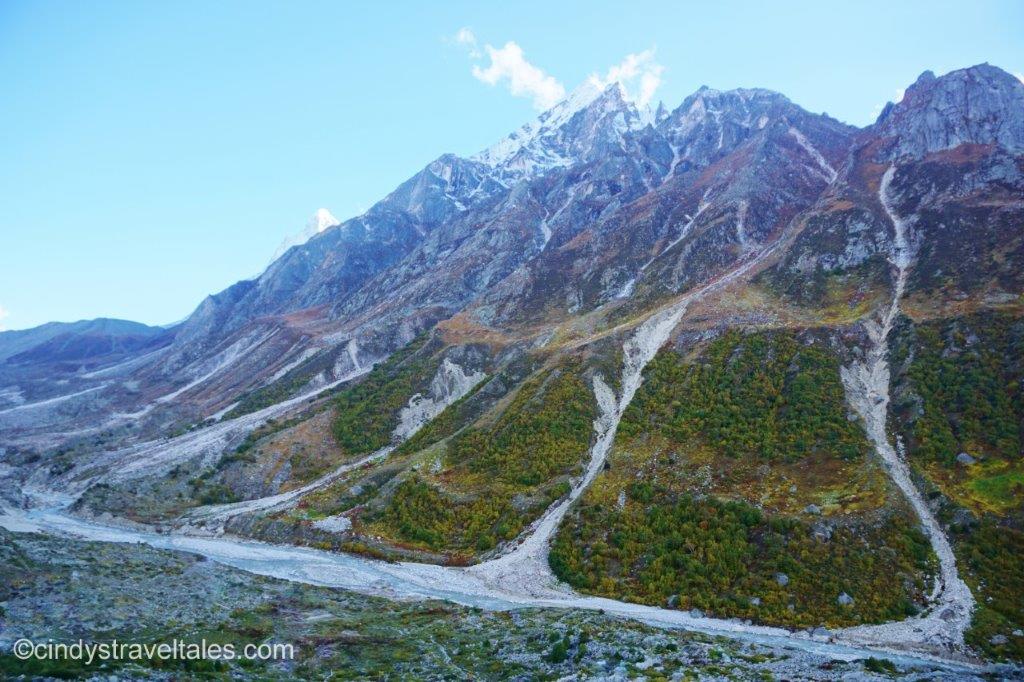
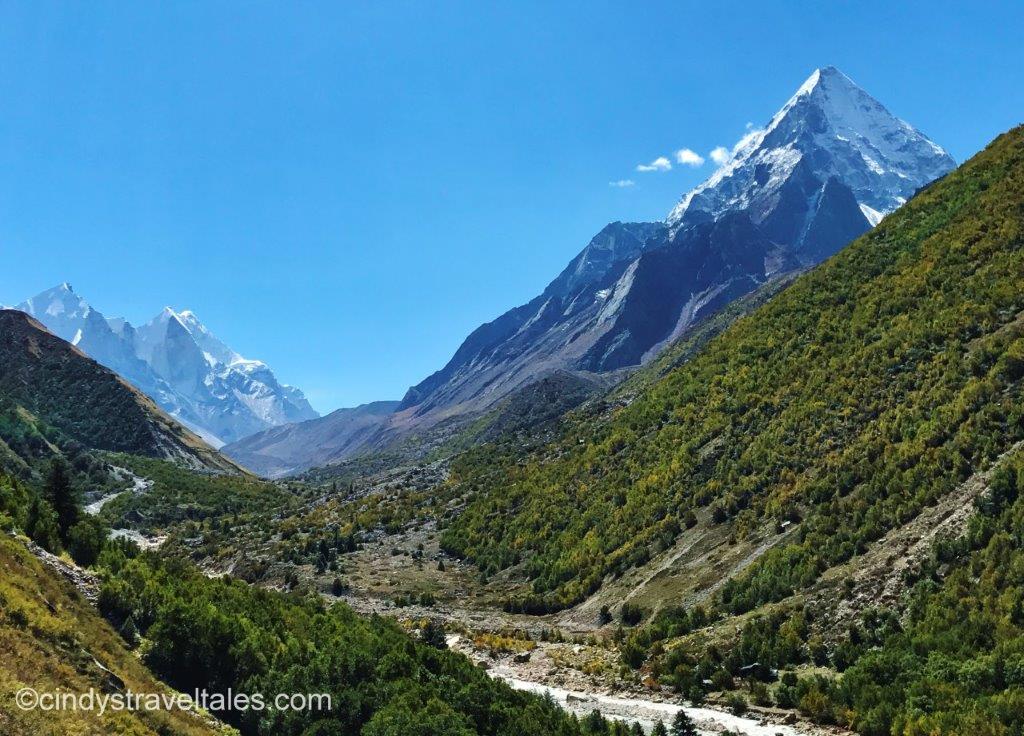
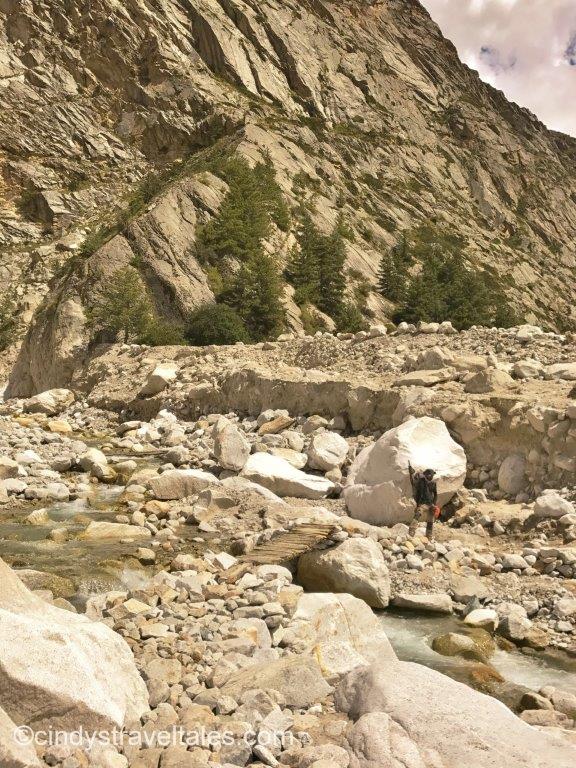
Day Three
Halfway to Gaumukh Glacier, we had to navigate a recent landslide that had wiped out the trail. Our stocky porters, defying their short legs and onerous packs, boulder hopped through the chaotic landscape. As I gazed skyward at what was left of the mountainside, I shivered at the thought of running this gauntlet: gigantic pieces of bedrock were precariously hanging overhead; an abrupt drop into the Bhagirathi threatened on the right; and the lingering sound of rubble crashed in the distance.
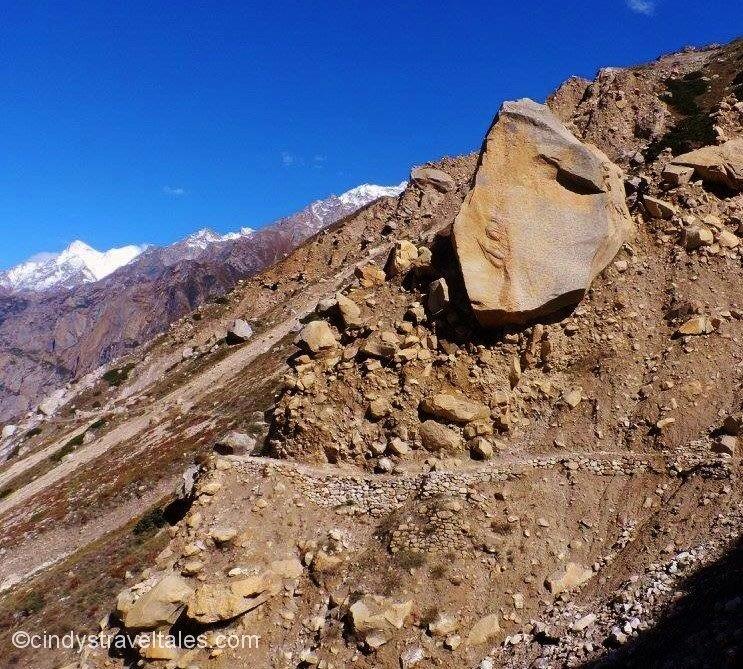
Compassionately, the mountain men managed to not just traverse the unchartered wasteland, but they returned to help us to safe passage. One exceptionally attentive Sherpa endeared himself to me by lending a firm hand, a reassuring tone and a hair-raising piggyback ride over the insanely perilous stretches. Though I was, admittedly, way out of my comfort zone, I mustered my mental acumen, remembered to breathe and focus on my balance and stable footholds – grateful for my invincible hiking poles, sturdy boots and indestructible gloves.
As exhilarating as it was to eventually reach Gaumukh — renowned as a popular Hindu pilgrimage site – it was also sad to know that the lion’s share of devotees would no longer make it past the rockslide. Astonishingly, the glacier had been pummelled with so much fresh granite and muck that the snout had been damaged and the icy melt into the Ganges River was now emerging from the left side, instead from the centre. Contrary to those picturesque blue-ice masses showcased in Alaska, Greenland and New Zealand, this was black floe shrouded in a thick layer of moraine, comprised of a mishmash of perpetually accumulating mud and boulders.
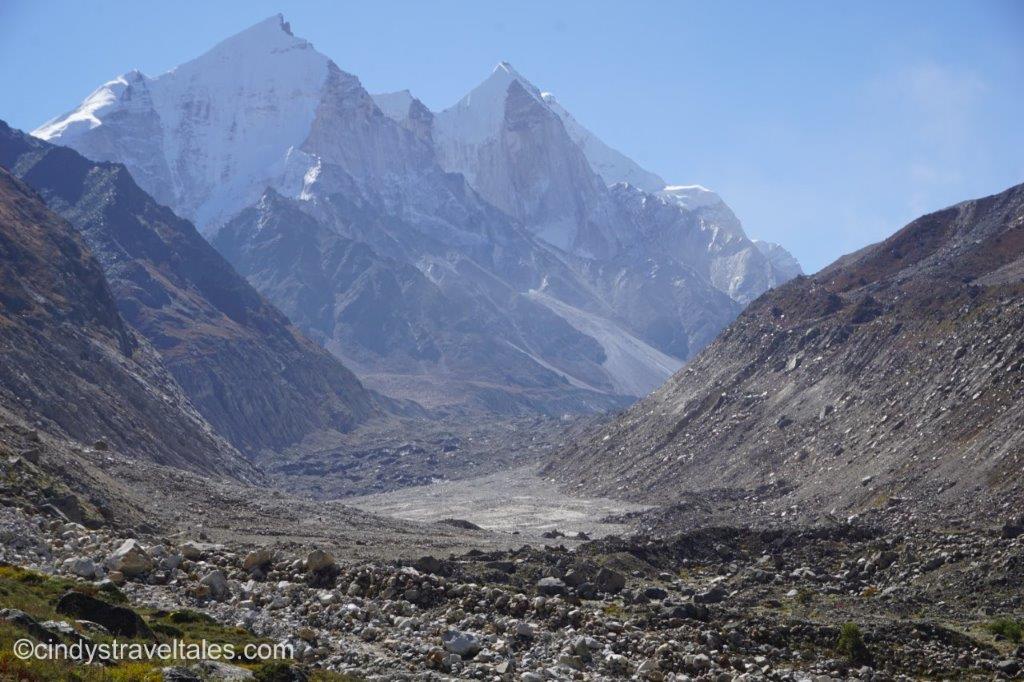
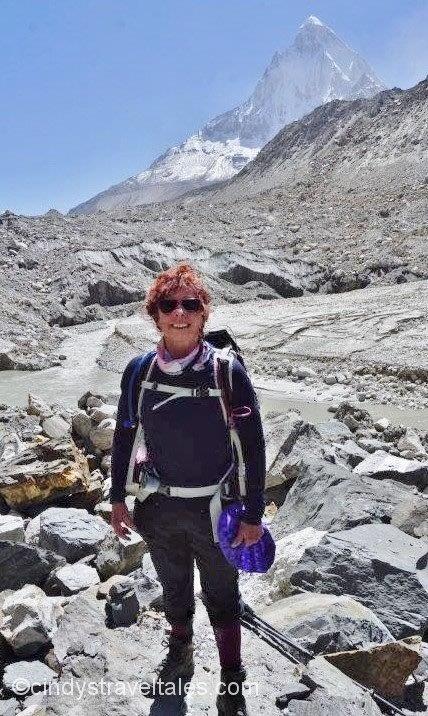
It was no small feat scrambling up the slope, and, once on top, there was no hint of a path – with crude cairns positioned by preceding adventurers serving as our sole navigation guides. The arduous 2-hour trudge across Gaumukh tested our physical abilities, yet rewarded us with sweeping panoramas of the encircling lofty ridges.
With no time to rest, we single-mindedly focused on the next endeavour: a ridiculously steep, 2 km (1.25 mile), 70-degree pitch leading to our final destination. Unsurprisingly, there was no track – only loose scree – so we had to fight tooth and nail to claw ourselves forward. Ultimately, after our dawn-to-dusk, demanding slog, Tapovan welcomed us to its stunning alpine meadow. The ubiquitous flowers and babbling streams were juxtaposed with unobstructed views of revered Mts. Shivling, Meru, Bhagirathi I, II, III and Sudarshan Parbat. The sheer beauty of Tapovan was astonishing and my heart overflowed with joy as I marvelled at our haven on the roof of the world.
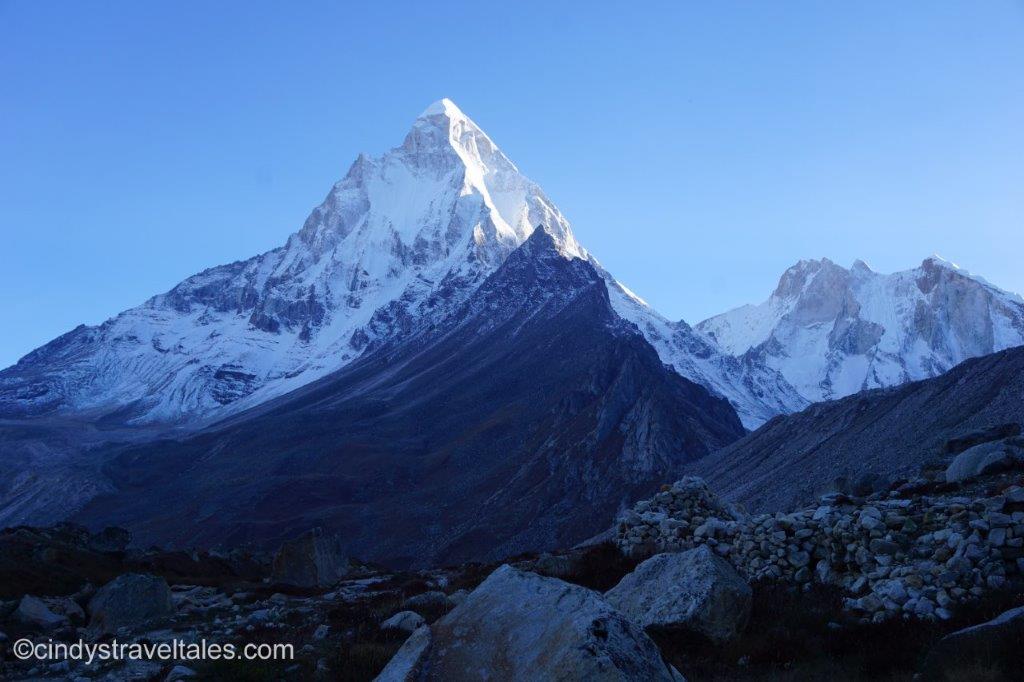
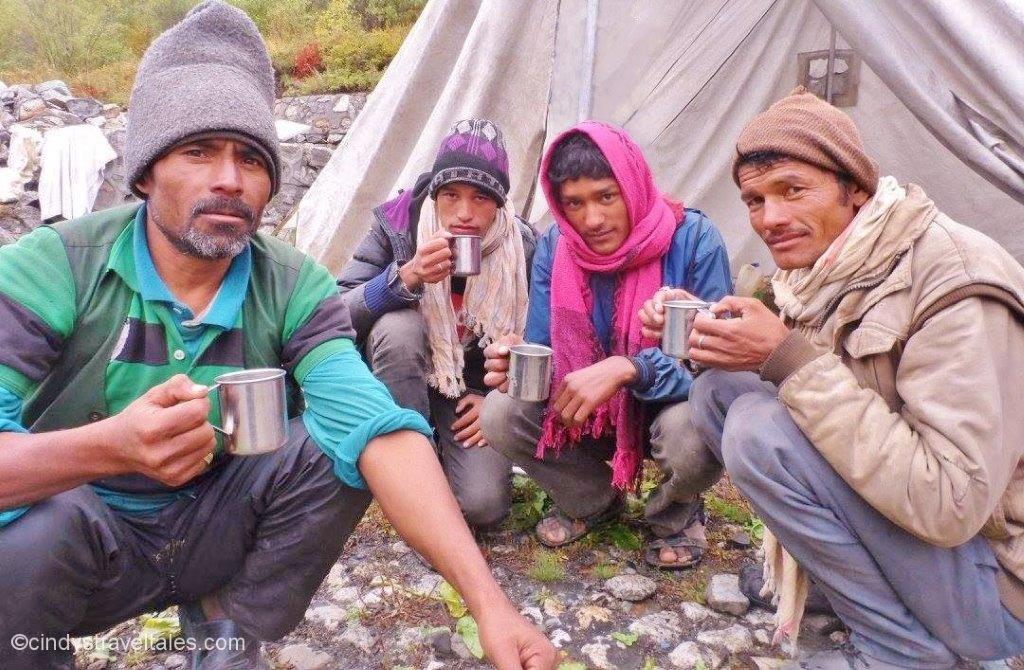

Hi there, just became aware of your blog through Google, and found that it’s really informative.
I am going to watch out for brussels. I’ll appreciate if you continue this in future. Lots of people will be benefited from your writing.
Cheeгs!
Hi there, aftеr reading this amazing article i am too glad to share my experience here with friends.
It is not my first time to go to see this web page, i am browsing this site daily and obtain good information from here daily.
I am extremely impressed together with your writing abilities and also with the structure on your weblog.
Is that this a paid subject or did you customize it your
self? Anyway keep up the excellent quality writing, it’s uncommon to see a great weblog like this one nowadays..
I am actually grateful to the owner of this web page who has shareԁ this enormous post at this place.
I was suggested this blog by my cousin.
You’re wonderful! Thanks!